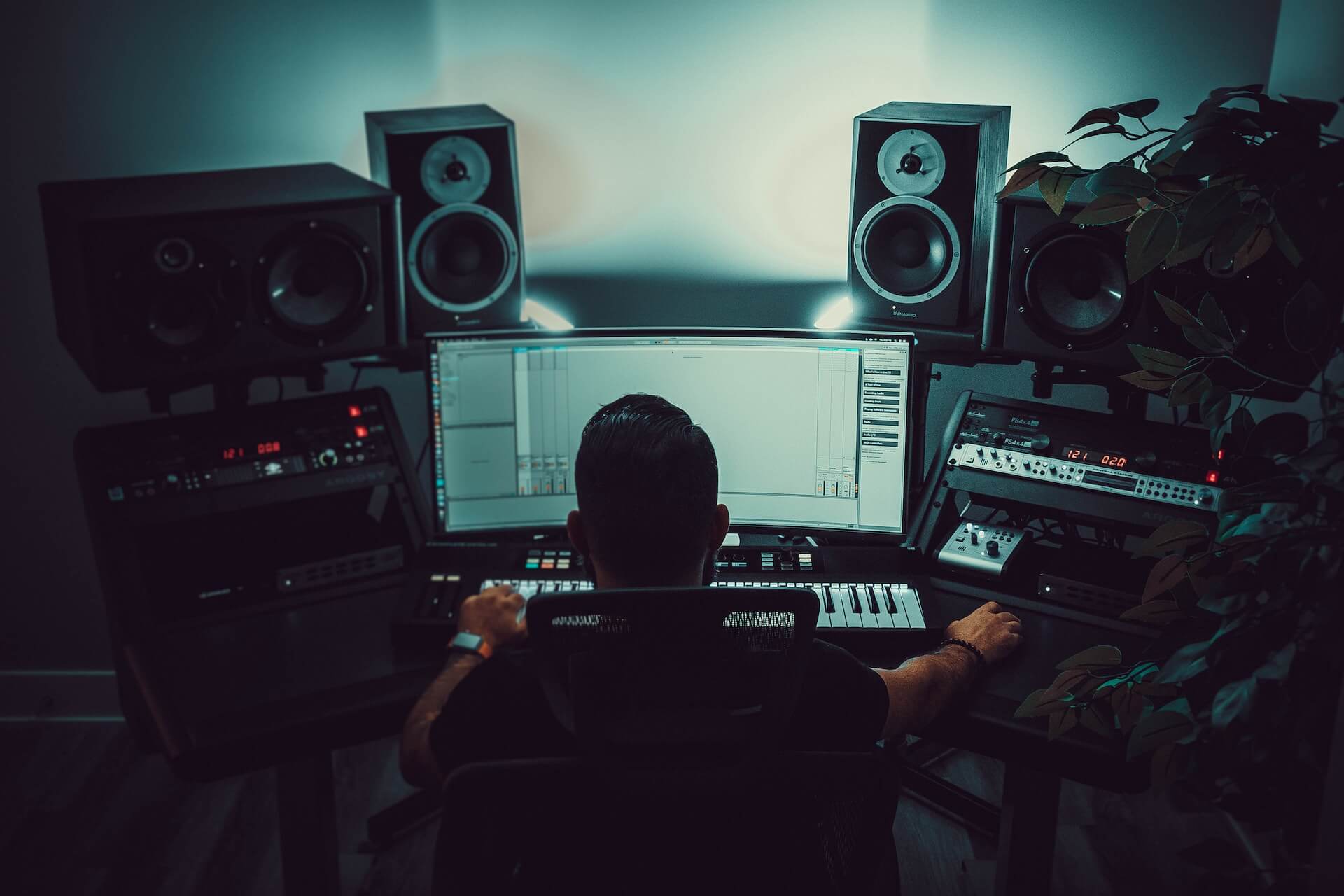In the fast-paced and ever-evolving music industry, having a comprehensive business plan is crucial for anyone looking to start and run a profitable recording studio. With the growing demand for quality sound recording and production, it is essential to have a clear roadmap that outlines your objectives, target audience, marketing strategies, and financial projections. In this article, we will take an in-depth look at the essential steps involved in creating a recording studio business plan that can help you succeed in the competitive world of music production. From identifying your niche to mapping out your revenue streams, we will provide you with the tools and insights you need to build a successful music production business.
Table of Contents
- 1. Understanding the Music Production Business: What You Need to Know Before Starting a Recording Studio
- 2. The Basics of Writing a Recording Studio Business Plan: Key Components and Structure
- 3. Conducting Market Research: Identifying Your Target Market and Competitors
- 4. Choosing the Right Location for Your Recording Studio: Factors to Consider
- 5. Securing Funding for Your Music Production Business: Investors, Loans, and Grants
- 6. Deciding on Your Recording Studio Equipment and Setup: Essential Gear and Optional Add-ons
- 7. Branding and Marketing Your Recording Studio: Developing a Memorable Identity and Promoting Your Services
- 8. Pricing Strategies for Your Music Production Business: Setting Rates and Fees
- 9. Hiring and Managing Staff for Your Recording Studio: Building a Strong Team for Success
- 10. Legal Considerations for Your Recording Studio Business: Permits, Licenses, and Contracts
- 11. Measuring Success and Adjusting Your Business Plan: Analyzing Your Finances and Making Strategic Changes
- 12. Continuing Education and Professional Development in Music Production: Staying Ahead of Industry Trends and Technology.
- Our Readers Ask
- Final Thoughts
1. Understanding the Music Production Business: What You Need to Know Before Starting a Recording Studio
The music production business can be a lucrative venture for music lovers who want to make a career out of their passion for music. However, it takes more than just the love of music to succeed in this industry. Before starting your recording studio, it is essential to grasp the complexities of the music production business and what it entails. This post will guide you through what you need to know before starting your recording studio.
Firstly, it is vital to consider your target market and the type of music you want to produce. Are you interested in music for movies, television shows, or commercial advertisements? The music you produce will determine the clients you attract and the equipment you will need. It is essential to invest in quality equipment that will give your clients the sound quality they desire. This may include microphones, speakers, mixing boards, and software. Becoming familiar with these tools and how to use them is vital to the success of your recording studio.
Secondly, it is crucial to have a solid business plan that outlines your vision, objectives, and the finances required to set up and run a successful recording studio. This includes identifying your competition and their strengths and weaknesses, setting prices that will allow you to be competitive, marketing your services to potential clients via social media, and building relationships with clients to ensure repeat business. Lastly, never underestimate the importance of networking and building a positive reputation in the industry. Word of mouth is a powerful tool that can lead to more clients and more significant opportunities.
2. The Basics of Writing a Recording Studio Business Plan: Key Components and Structure
A well-structured business plan is a fundamental pillar for the success of a recording studio. It helps to provide a roadmap that outlines the various steps to be taken towards sustainable growth. Often, it is advisable to break down the business plan into specific components to provide clarity on what is required. Some of the key components include the executive summary, market analysis, company description, product and service line, organization and management, marketing and sales, and financial projections.
The executive summary should summarize the entire business plan in a concise statement, highlighting the business’s key objectives, strategies, and financial needs. The market analysis should focus on the industry trends and competition to determine the business’s viability. The company description should give a brief background of the studio, highlighting its ownership structure, target market, and business location. The product and service line should describe the studio’s core services, including recording, mixing, and mastering services, among others. Finally, the financial projections should show the expected profits, cash flow, and balance sheet, providing a detailed analysis of the business’s financial health. A well-written business plan should attract investors and convince lenders to fund the business.
 3. Conducting Market Research: Identifying Your Target Market and Competitors
3. Conducting Market Research: Identifying Your Target Market and Competitors
One of the most critical steps in building a successful business is identifying the right target audience. Your target audience consists of the people who are most likely to buy your product or service and help you grow your business. Your target market should not only be a defined group of individuals, but you also need to ensure that what you offer is desirable to them. So here are a few tips to help you identify your target market:
– Start with the basics. Think about your product or service, then think about who would benefit from it the most. Consider things like demographics (age, gender, location, etc.), social and economic backgrounds, hobbies, interests, and lifestyles.
– Analyze your competition. Look at the businesses that are currently offering similar products or services and who they are targeting. Pay attention to the gaps or untapped markets that they may have missed. Use this information to learn more about your competition and how you can differentiate your business from theirs.
Knowing your competition is essential when it comes to succeeding in the market. Hence, it is essential to conduct thorough research on your competitors to gain knowledge about their strengths and weaknesses. Here are some of the things you should consider when researching your competition:
– Identify your competitors. Find out who is currently offering the same or similar products or services in your industry.
– Analyze their marketing strategies. Take a closer look at the way they market and promote their products or services. Are they targeting specific groups of people or the general audience?
– Check their pricing. Study how they price their products and services and see if they offer any discounts or deals.
– Look out for their strengths and weaknesses. This will help you understand where your competitors are excelling and the areas where they need improvement. Use this information to your advantage when developing your marketing and positioning strategies.
Conducting market research is a crucial step in identifying your target market and competitors. Doing so can help you develop strategic marketing plans and better understand how to position your business in the market. By analyzing your competition and understanding your target audience, you can gain a competitive advantage and ensure the success of your business.
4. Choosing the Right Location for Your Recording Studio: Factors to Consider
When choosing a location for your recording studio, there are a number of factors to consider that can greatly impact the success of your business. The first factor to keep in mind is the level and frequency of noise in the surrounding area. You will want to select a location that is relatively isolated from noise pollution such as highways, construction, and other sources of interference. This is critical since background noise can negatively affect sound quality and hinder the overall recording process.
In addition to noise, other factors to consider include accessibility, parking, and transportation. Your studio should be in a location that is easily accessible for your clients and staff. It should ideally be in a part of town that is easily reachable by car, train, or other modes of transportation. You will also need to ensure that there is ample parking available for both your clients and your staff. Finally, you will want to consider the demographic of the area. If your studio caters primarily to a younger audience, you may want to consider a location that is in or near a college town or trendy neighborhood. On the other hand, if your clients are primarily older, you may want to look for a location that is more upscale and has a more mature clientele.
5. Securing Funding for Your Music Production Business: Investors, Loans, and Grants
It takes a lot of money to start a music production business. One way to secure funding is through investors. Having an investor on board can not only provide financial support but also open doors to networking opportunities. Before seeking out investors, make sure to have a solid business plan and a clear idea of how their investment will be utilized. Investors will want to see a strong return on their investment, so be prepared to pitch your business with confidence and detail.
Another option for funding your music production business is through loans. Banks and other financial institutions offer business loans but be prepared to provide collateral and have a good credit score. Some types of loans, like Small Business Association (SBA) loans, may offer more flexibility in terms of collateral and repayment options. Make sure to shop around and compare interest rates and terms before committing to a loan. Lastly, grants can also be a great source of funding. There are many organizations and foundations that offer grants specifically for the arts and music-related businesses. Do some research to find grants that may be applicable to your business and make sure to follow all guidelines and requirements when applying.
6. Deciding on Your Recording Studio Equipment and Setup: Essential Gear and Optional Add-ons
When putting together your recording studio, it’s crucial to decide on the essential gear you need and the optional add-ons. Here are some items that should be included in a basic setup for recording and producing music.
Essential gear:
– A computer with digital audio workstation (DAW) software for recording, editing, and mixing your music
– An audio interface to connect your instruments and microphones to your computer
– Studio monitors for accurate playback of your recordings
– Microphones for recording vocals and instruments
– Cables, stands, and pop filters for your microphones
Optional add-ons:
– MIDI keyboard for playing virtual instruments and programming drum beats
– Preamp for improving the quality of your microphone recordings
– Headphones for monitoring your recordings without sound leakage
– Acoustic treatment for the walls and ceiling to improve sound quality
– Drum pads or electronic drum kit for recording live drums without needing a full drum set
Remember, the gear you choose ultimately depends on your specific needs and budget. Do your research and consult with professionals to ensure you have the right setup for your goals.
 7. Branding and Marketing Your Recording Studio: Developing a Memorable Identity and Promoting Your Services
7. Branding and Marketing Your Recording Studio: Developing a Memorable Identity and Promoting Your Services
When it comes to branding and marketing your recording studio, developing a memorable identity is crucial. Your branding should reflect the unique personality and values of your studio and resonate with your target audience. To develop your studio’s identity, you’ll need to create a visual brand that’s consistent across all platforms, including your logo, website, and social media channels. Your branding should be instantly recognizable, visually compelling, and well-designed.
To promote your services, you’ll need to develop a comprehensive marketing plan that targets your ideal clients. Consider advertising in local music magazines or online communities, creating targeted social media ads, and leveraging client testimonials to build trust and credibility. You can also offer promotional deals or incentives to encourage new clients to book sessions with your studio. By taking a strategic approach to branding and marketing, you can differentiate your studio from the competition, attract more clients, and build a strong reputation in the recording industry.
8. Pricing Strategies for Your Music Production Business: Setting Rates and Fees
One essential aspect of running a successful music production business is determining the right pricing strategy that works best for you and your clients. Factors like competition, location, and expertise level can all influence the prices you charge for your services. Here are some pricing strategies to consider when setting rates and fees for your music production business:
– Hourly rate: This strategy works well if you’re just starting out, and you’re not sure how long it takes you to complete a project. You can charge an hourly rate and bill your clients for the exact number of hours you’ve worked. However, it may not be the best strategy in the long run as your clients won’t know the overall cost upfront, and it doesn’t consider the value you bring to the project.
– Project-based pricing: This strategy works better for more experienced music producers who know how long it takes to complete specific projects. You can charge clients a flat fee for each project, and the cost doesn’t vary depending on how long it takes you to complete it. This pricing strategy works well for clients who prefer fixed costs and want to know the overall cost upfront.
Other pricing strategies to consider include value-based pricing, where you charge based on the value you bring to the project, or content-based pricing, where you charge based on the length, complexity, and type of content. It’s important to find the right pricing strategy that works best for you and your clients as it could make a significant difference in growing your music production business.
9. Hiring and Managing Staff for Your Recording Studio: Building a Strong Team for Success
To build a successful recording studio, hiring the right staff comes with its own set of challenges. You need to create a team of experienced, talented staff that are passionate and committed to taking your studio to the next level. Here are some tips to help you in hiring and managing staff for your recording studio.
Firstly, it’s important to identify the roles you need in your studio. You might require a sound engineer, producer, assistant, or intern to help with administrative tasks. It’s essential to hire someone with the right skills, experience, and passion for music. You can advertise the positions on job boards or social media platforms. Once you receive applications, you can conduct interviews to evaluate candidates’ skills and experience. Secondly, it’s crucial to build a team that not only has the necessary skills but also shares the same vision as you. A cohesive team that can work together collaboratively will increase your studio’s chances of being successful. It’s essential to create a positive environment that will motivate staff to deliver high-quality work. It’s also vital to offer opportunities for career growth and development to retain your staff and increase their skills. Employing these hiring and managing strategies will ensure that you build a team that is passionate, skilled, and committed to the success of your recording studio.
10. Legal Considerations for Your Recording Studio Business: Permits, Licenses, and Contracts
When starting a recording studio business, it is crucial to consider the legal aspects to comply with the legal requirements of your local and state governments. This includes obtaining the necessary permits and licenses to operate your business without interference from the authorities. Some necessary permits and licenses you need to obtain include environmental permits, building permits, and business operating licenses. You may also need to get a zoning permit if your local government requires it. Obtaining these permits ensures that your recording studio complies with local regulations and protects you from potential legal issues.
Aside from permits and licenses, you need to consider contracts that bind you and your clients and the contracts that you need to execute to protect the interests of your recording studio. Contracts like studio rental agreements, equipment leasing agreements, and musician collaboration contracts need to be in place as they outline obligations, and payment details, and protect you from litigation. Always ensure that all contracts are clear, concise, and properly drafted to avoid misunderstandings and legal issues in the future. When it comes to legal considerations, it’s always best to consult with a lawyer to ensure that your recording studio business is in compliance with local, state, and federal regulations and laws.
11. Measuring Success and Adjusting Your Business Plan: Analyzing Your Finances and Making Strategic Changes
One of the most crucial aspects of running a successful business is measuring success and adjusting your business plan accordingly. Analyzing your finances is a critical part of this process since it gives you a clear idea of how your business is performing. By tracking your income and expenses, you can identify areas where you can cut costs, find opportunities to increase revenue and monitor your overall financial health.
To analyze your finances, start by reviewing your profit and loss statement, also known as an income statement. This statement shows your business’s revenue, expenses, and net income or loss over a given period. Look for patterns and trends in your data, such as changes in revenue or unexpected expenses. Use this information to make informed decisions about how to adjust your business plan strategically to achieve your goals. Additionally, it’s important to use reliable accounting software such as QuickBooks to manage and analyze your finances. This software allows you to customize your financial reports, automate accounting tasks, and gain insights into your financial performance that can help you make better decisions for your business’s future.
 12. Continuing Education and Professional Development in Music Production: Staying Ahead of Industry Trends and Technology
12. Continuing Education and Professional Development in Music Production: Staying Ahead of Industry Trends and Technology
As we all know, technology is constantly evolving, and it is no different in the music industry. To stay ahead of the curve, music production professionals must keep up with the latest trends and advancements. Continuing education and professional development are essential in this field, and fortunately, there are many options available.
One way to stay up-to-date is by attending workshops, conferences, and seminars. These events provide opportunities to learn new techniques, network with other professionals, and gain insights into emerging technologies. Additionally, online courses and certifications can be taken at any time from the comfort of one’s own home. Websites such as Coursera, LinkedIn Learning, and Berklee Online offer programs that cover a wide range of topics in music production. By taking advantage of these resources, professionals can expand their skill sets, become more competitive in the job market, and establish themselves as experts in their fields.
Our Readers Ask
Q: What is a recording studio business plan?
A: A recording studio business plan is a document that outlines your strategy for starting and running a profitable music production business. It includes information about your target market, competition, marketing and sales strategies, financial projections, and more.
Q: Why is a recording studio business plan important?
A: A recording studio business plan is important because it helps you clarify your vision for the business, understand your target market and competition, identify potential risks and challenges, and create a roadmap for achieving your goals. It also serves as a tool for attracting investors, partners, or lenders.
Q: What are some key elements of a recording studio business plan?
A: Some key elements of a recording studio business plan include a market analysis, a description of your products and services, a marketing and sales strategy, a management plan, financial projections, and a risk assessment.
Q: How do I conduct a market analysis for my recording studio business plan?
A: To conduct a market analysis for your recording studio business plan, you will need to gather information about your target market, including demographics, behavior patterns, needs, and preferences. You will also need to research your competitors and the overall music production industry.
Q: What are some effective marketing and sales strategies for a recording studio business?
A: Effective marketing and sales strategies for a recording studio business include creating a strong online presence, building relationships with artists and industry professionals, offering competitive prices and high-quality services, and leveraging social media platforms.
Q: How can I create realistic financial projections for my recording studio business plan?
A: To create realistic financial projections for your recording studio business plan, you will need to estimate your expenses and revenue based on market research and industry standards. You should also consider factors such as equipment and studio rental costs, employee salaries, and marketing expenses.
Q: What are some common challenges that recording studio businesses face, and how can I address them in my business plan?
A: Common challenges that recording studio businesses face include seasonality, competition, changing technology, and a fickle industry. In your business plan, you can address these challenges by including contingency plans, adapting your marketing and sales strategies, and staying up to date with industry trends and technology advancements.
Q: What are some tips for creating a successful recording studio business plan?
A: Some tips for creating a successful recording studio business plan include conducting thorough market research, being clear and concise in your writing, setting realistic goals and milestones, seeking feedback from professionals in the music production industry, and making sure your financial projections are based on sound assumptions.
Final Thoughts
Starting a recording studio can be a great business opportunity for those who are passionate about music and have a solid understanding of the industry. It is essential to create a detailed business plan that outlines your goals, financial projections, marketing strategies, and equipment needs. Success in this industry requires hard work, dedication, and a commitment to producing high-quality recordings.
Whether you want to serve the needs of local musicians or aim to become a major player in the music industry, following these steps can help you establish and run a successful recording studio business. In the end, the key is to continually adapt and innovate to keep up with the ever-changing music landscape. By staying on top of trends and providing top-notch services, you can build a loyal customer base and make a name for yourself in the industry.







